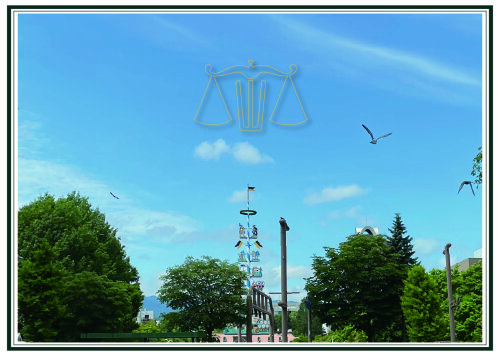Best Merger & Acquisition Lawyers in Sapporo
Share your needs with us, get contacted by law firms.
Free. Takes 2 min.
List of the best lawyers in Sapporo, Japan
About Merger & Acquisition Law in Sapporo, Japan
Merger & Acquisition (M&A) activities in Sapporo, Japan, like many other regions, are governed by a blend of domestic business law and international trade guidelines. Sapporo, being part of Japan's robust economy, witnesses a variety of M&A activities ranging from small local firms merging to significant cross-border acquisitions. The legal landscape in Sapporo is shaped by a combination of the national Commercial Code, regulatory frameworks, and the enforcement of competition laws by the Fair Trade Commission. Legal expertise in this field is crucial as it involves meticulous due diligence, compliance with statutory requirements, and negotiation of complex contracts.
Why You May Need a Lawyer
M&A transactions are multifaceted and often require legal expertise to navigate successfully. Here are a few common situations where seeking legal advice is essential:
- Due Diligence: Conducting comprehensive legal and financial due diligence is critical to identify potential risks and liabilities.
- Contract Negotiation: Lawyers assist in drafting and negotiating terms that protect clients' interests.
- Regulatory Compliance: Ensuring compliance with local and international regulations can prevent unintended legal consequences.
- Dispute Resolution: In the event of disagreements or legal challenges, a lawyer can provide representation and advice on conflict resolution.
- Strategic Planning: Legal experts help align M&A transactions with business strategic goals, ensuring a beneficial outcome.
Local Laws Overview
Sapporo, under Japanese jurisdiction, adheres to several key legal frameworks affecting M&A transactions:
- Commercial Code: Governs the establishment, governance, and operations of companies in Japan.
- Financial Instruments and Exchange Act: Addresses matters related to securities and financial transactions.
- Anti-Monopoly Act: Enforced by the Japan Fair Trade Commission, this act prevents activities that may hinder fair competition.
- Foreign Exchange and Foreign Trade Act: Regulates transactions potentially impacting national security and economic safety.
Frequently Asked Questions
What are the primary steps in an M&A transaction?
The steps typically include due diligence, valuation, negotiation, drafting of agreements, regulatory approvals, and closing.
How can I ensure compliance with competition laws?
A lawyer can help you assess potential antitrust issues and guide you through obtaining necessary clearances from the Fair Trade Commission.
What is due diligence in M&A?
It's a comprehensive appraisal of a business conducted by a prospective buyer, assessing financial, legal, and operational facets to minimize risks.
Are there restrictions on foreign companies acquiring Japanese firms?
Yes, under the Foreign Exchange and Foreign Trade Act, certain sectors may require government approval for foreign acquisitions.
How are M&A disputes typically resolved?
Disputes can be resolved through negotiations, mediation, arbitration, or litigation depending on the agreement between parties.
Can minority shareholders block an M&A transaction?
In certain scenarios, minority shareholder rights might allow them to challenge transactions, particularly if unfair practices are involved.
What taxes apply to M&A transactions in Japan?
Taxes can include corporate taxes, capital gains taxes, and stamp duties. Tax planning is an integral part of M&A structuring.
How long does a typical M&A process take?
It varies widely, but a typical timeframe might range from several months to over a year, depending on complexity and regulatory requirements.
Do I need to notify any authorities in Japan about an M&A transaction?
Yes, some transactions require notifications or approvals from authorities like the Fair Trade Commission and other sector-specific regulators.
Can an M&A transaction be done privately?
While aspects of a transaction can be confidential, significant transactions often require public disclosures under securities laws.
Additional Resources
Useful resources and organizations include:
- Japan Fair Trade Commission: Oversees competition law and anti-monopoly regulations.
- Ministry of Economy, Trade and Industry: Provides guidelines and supports industrial and trade policies.
- Japan External Trade Organization (JETRO): Offers support for foreign investors contemplating M&A in Japan.
- Local Business Chambers: Such as the Sapporo Chamber of Commerce can be valuable for networking and local insights.
Next Steps
If you need legal assistance in M&A in Sapporo, Japan, consider taking the following steps:
- Research and Select a Lawyer: Look for attorneys or legal firms specializing in M&A with experience in Japanese markets.
- Consultation: Arrange consultations to discuss your specific needs, potential strategies, and the lawyer's experience.
- Engagement: Once you find a suitable lawyer, formally engage their services to begin the legal process.
- Prepare Documentation: Gather all necessary documents related to your business and the proposed M&A transaction.
- Stay Informed: Maintain open communication with your lawyer to stay informed of developments and next steps in the process.
Lawzana helps you find the best lawyers and law firms in Sapporo through a curated and pre-screened list of qualified legal professionals. Our platform offers rankings and detailed profiles of attorneys and law firms, allowing you to compare based on practice areas, including Merger & Acquisition, experience, and client feedback.
Each profile includes a description of the firm's areas of practice, client reviews, team members and partners, year of establishment, spoken languages, office locations, contact information, social media presence, and any published articles or resources. Most firms on our platform speak English and are experienced in both local and international legal matters.
Get a quote from top-rated law firms in Sapporo, Japan — quickly, securely, and without unnecessary hassle.
Disclaimer:
The information provided on this page is for general informational purposes only and does not constitute legal advice. While we strive to ensure the accuracy and relevance of the content, legal information may change over time, and interpretations of the law can vary. You should always consult with a qualified legal professional for advice specific to your situation.
We disclaim all liability for actions taken or not taken based on the content of this page. If you believe any information is incorrect or outdated, please contact us, and we will review and update it where appropriate.










